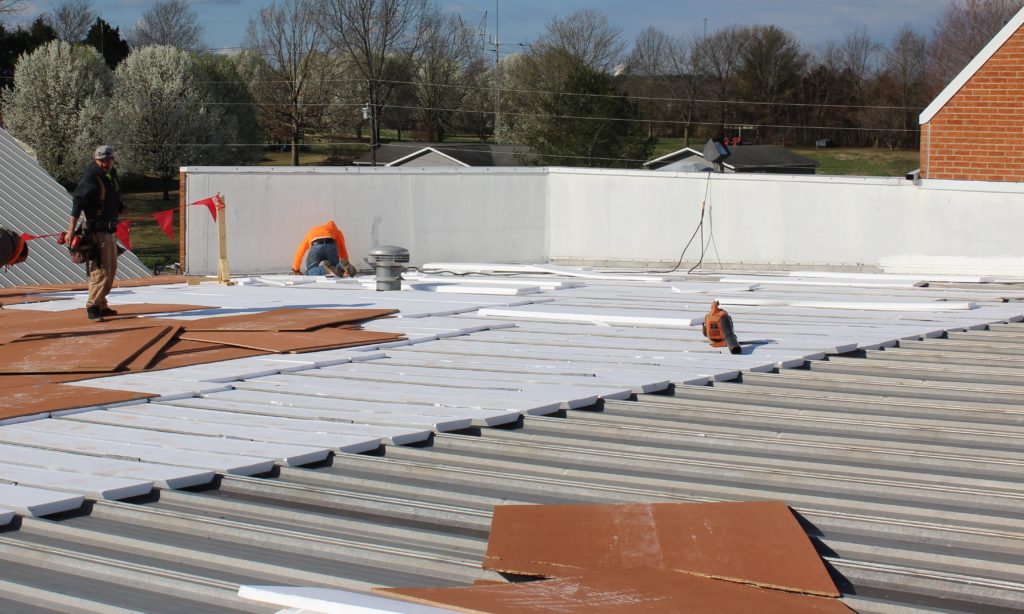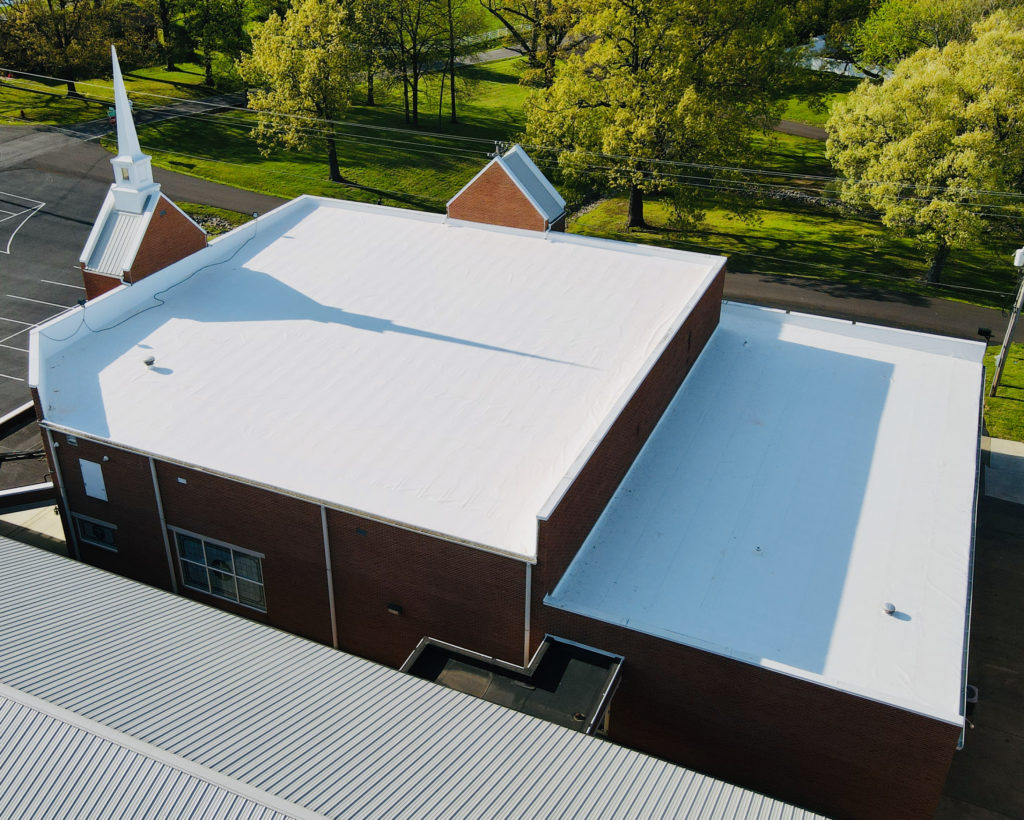Many people outside the roofing industry don’t know what we mean when we talk about Flat Roof System. A flat (or Low Slope) roof is not just shingles or metal laid flat across a building, actually there is a lot more to it, most NEVER involving shingles or even metal.
A Flat Roof System is basically a roofing system laid across a 0/12 to 4/12 pitch. While the word flat is in the name it is almost always, if installed properly, laid with a slight pitch to allow water to run to a directed area where it can properly and harmlessly drain.
Flat Roof Make-up Benefits
There are several different kinds of flat roof coverings ranging from Plastic to concrete. Systems can be topped off with:
*TPO – Thermoplastic Polyolefin

This is a type of thick plastic which when heat welded together, forms a waterPROOF barrier which can be guaranteed from 10-20 years depending on which one comes with your roof. This is one of the most common Flat Roofing materials due to it’s reliability. and while a little more expensive many feel its well worth the cost
*EPDM – Ethylene Propylene Diene Monomer
This is a type of synthetic rubber is effective and cost efficient.
*PVC – Polyvinyl chloride
Two-layer vinyl coating used for the last 50 years. Dependable, but can have application issues.

*BUR – Built-Up Roof
Layers built up, topped with hot tar and gravel. The longest, albeit rarely used these days, flat roof covering.
*Modified Bitumen Flat Roof
Similar to the BUR, and applied in layers based on insulation, base sheets and membranes, adhesive, and surfacing layer
*Spray-On Roof
Single layered silicone topcoat that can be easily applied. It is cost effective but may need to be reapplied or repaired intermittently
*Metal Roof
Sheets of ribbed meal screwed together. Material is guaranteed up to 40 years

*Green Roof System
Rubber or plastic insulation covering with topsoil and particular green plants covering the roof. A burgeoning industry!
Basic Components of Flat Roofing

1. Waterproof Membrane/Layer
The outward appearance of your roof will always be a waterproof membrane/layer of some kind and is often the namesake of the type of Flat Roofing System you have. (ex. – TPO, EPDM, PVC, Metal Roof)
2. Insulation Layer
An insulation system designed to provide R-value and help regulate the temperature of the structure you are roofing.
3. Vapor Barrier
When local code requires it, under the insulation is your Vapor Barrier designed to prevent condensation from diffusing into the decking
4. Decking
Initial flat steel, concrete, or wooden surface your low-slope roofing material will set on.
5. Joist System
Structural support made of wood for you roof
6. Ceiling

The inner ceiling you see in your house
If you are interested in reading more, then go to Flat Roof – Wikipedia.
If you have questions you would like to have answered by a professional, then call Flat Roof Services at 270.703.0993.
We can help! Don’t wait till it costs you money.
FRS – Your Flat roof Partner!

